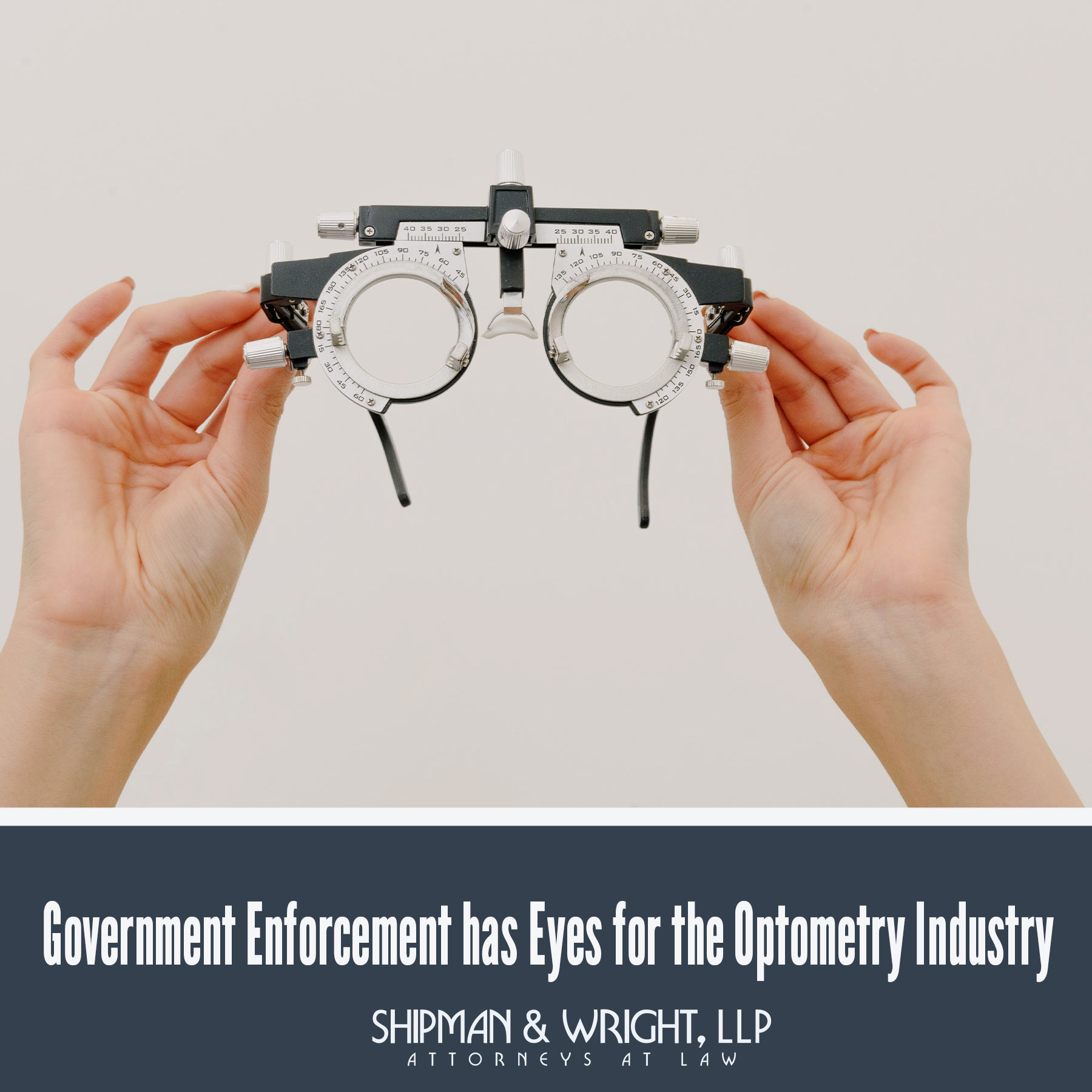Optometry practices frequently sail under the radar of government enforcement actions. Recently, however, government enforcement appears to have ramped up in the optometry industry.
FTC’s Cease and Desist Letters
The Federal Trade Commission (“FTC”) announced on April 20, 2023, that it sent 37 new cease and desist letters regarding violation of the FTC’s Ophthalmic Practice Rules, 16 C.F.R. Part 456, known as the Eyeglass Rule. The letters were sent in response to complaints made to the FTC.
Under the Eyeglass Rule, prescribers must provide patients with a copy of their eyeglass prescription immediately after an eye exam that includes refraction, even if the patient does not request it. Prescribers are not permitted to condition furnishing the prescription upon the patient purchasing eyeglasses from the provider. Also, prescribers are not allowed to place a liability waiver on the prescription or require patients to pay a fee to obtain a copy of their prescription.
A prescriber may require a patient to pay for the eye exam before providing a copy of the prescription to the patient if the prescriber also requires patients that do not need ophthalmic goods to immediately pay for their eye exam.
Violations of the Eyeglass rule may result in civil penalties up to $50,120 per violation.
State AGs Settlement with Visibly
Eleven State AGs reached a bipartisan settlement with Visibly, a vision telehealth company. The State AGs alleged that their investigation revealed that Visibly:
- Advertised, marketed, promoted, offered for sale, and sold its online vision tests in a manner that fails to comply with the Signatory AGs’ Consumer Protection Statutes;
- Made advertising or marketing claims that were false or misleading in nature including claims about its products accuracy and safety that were not substantiated by competent and reliable scientific evidence; and
- Made unfair and/or deceptive representations about customer satisfaction rates and guarantees.
Although Visibly denied any wrongdoing, it agreed to pay $500,000 to settle the allegations and agreed to assurances that included the following:
- To comply with Consumer Protection Statutes;
- To not advertise, market, promote, offer for sale, or sale any product to consumers, unless the product may be legally marketed in accordance with the FDCA or other FDA Authority;
- To have competent and reliable scientific evidence substantiating claims that its products are as safe and effective as products offered in doctor’s offices or other FDA approved devices;
- To properly disclose any terms or conditions related to satisfaction or money back guarantees or other refunds; and
- Provide a disclosure that its online vision test is not a substitute for an in-person comprehensive eye examination.
These government enforcement actions may point to increased scrutiny of the optometry industry. In the wake of these actions and the FTC’s settlement with BetterHelp, it is clear that government enforcement agencies are focused on companies providing fair marketing and advertising of its services.







